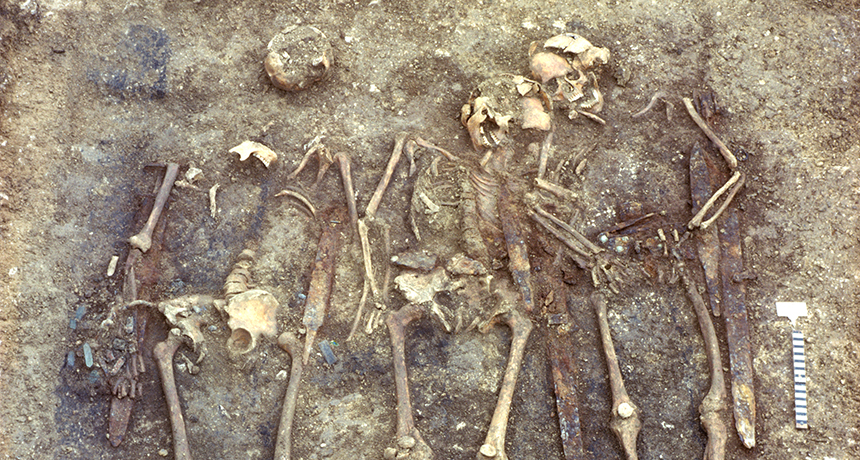German skeletons hint that medieval warrior groups recruited from afar

Power systems transcended kinship in medieval Europe. A burial site in southern Germany contains members of a powerful warrior family who journeyed widely to find recruits to join the household and support a post-Roman kingdom, a new study suggests.
Thirteen individuals interred at Niederstotzingen belonged to the Alemanni, a confederation of Germanic tribes that were conquered by and integrated into a neighboring kingdom of the Frankish people starting around 1,400 years ago, researchers say. Excavations in 1962 revealed the bodies, which the team estimates were buried from roughly 580 to 630, along with various weapons, armor, jewelry, bridle gear and the remains of three horses.
DNA extracted from the German skeletons identified 11 as probably males, biomolecular archaeologist Niall O’Sullivan of Eurac Research’s Institute for Mummy Studies in Bolzano, Italy, and colleagues report online September 5 in Science Advances. Six skeletons displayed genetic ties to modern northern and eastern Europeans. All but one of those six were closely related, including a father and two of his sons. Chemical analyses of tooth enamel, which provides regional signals of early childhood diet, indicated that these individuals grew up near Niederstotzingen.
Artifacts from three foreign medieval European cultures lay in the graves of four local males. Weapons and other objects typical of the Franks accompanied one man — the previously mentioned father — who may have headed the power household, the researchers suspect.
Another three individuals buried at the site were genetically unrelated to anyone else. Two possessed DNA like that of present-day Mediterranean people. All had spent their childhoods in other regions, tooth data suggest.
The new results support previous suggestions that, shortly after the Roman Empire’s fall in the fifth century (SN: 4/29/17, p. 18), the Frankish Empire maintained power throughout central Europe for several centuries by establishing mobile, warrior households that enforced obedience to the ruler.